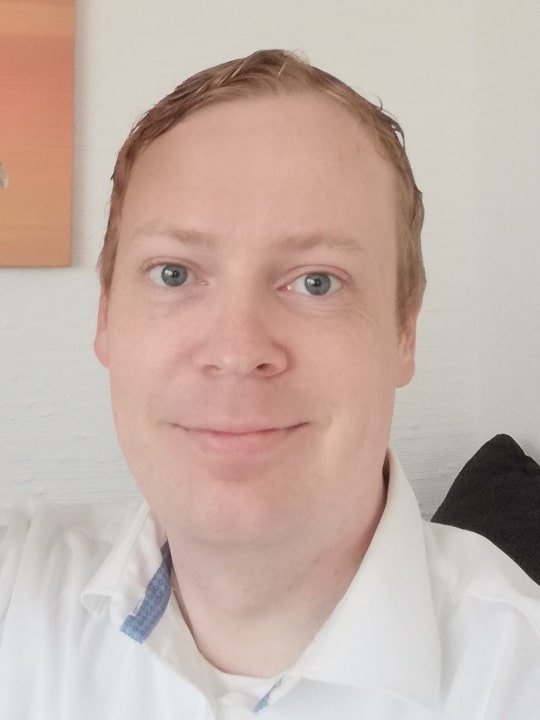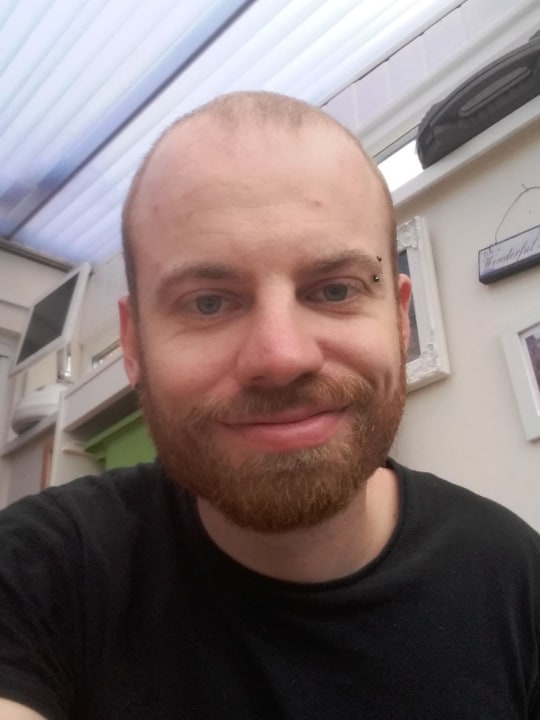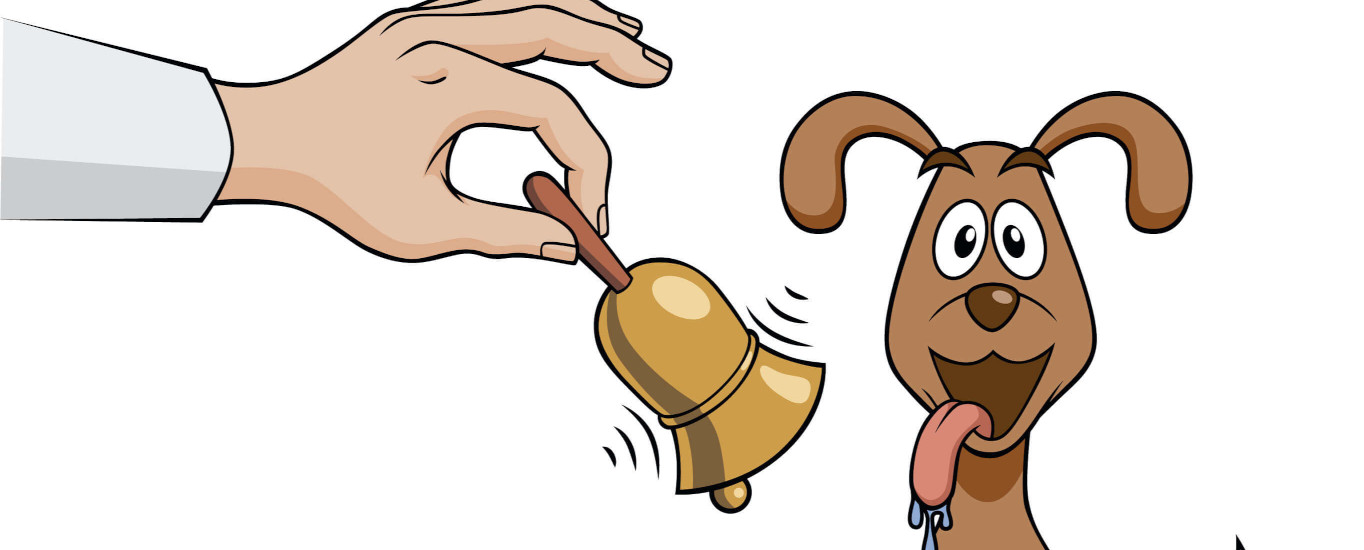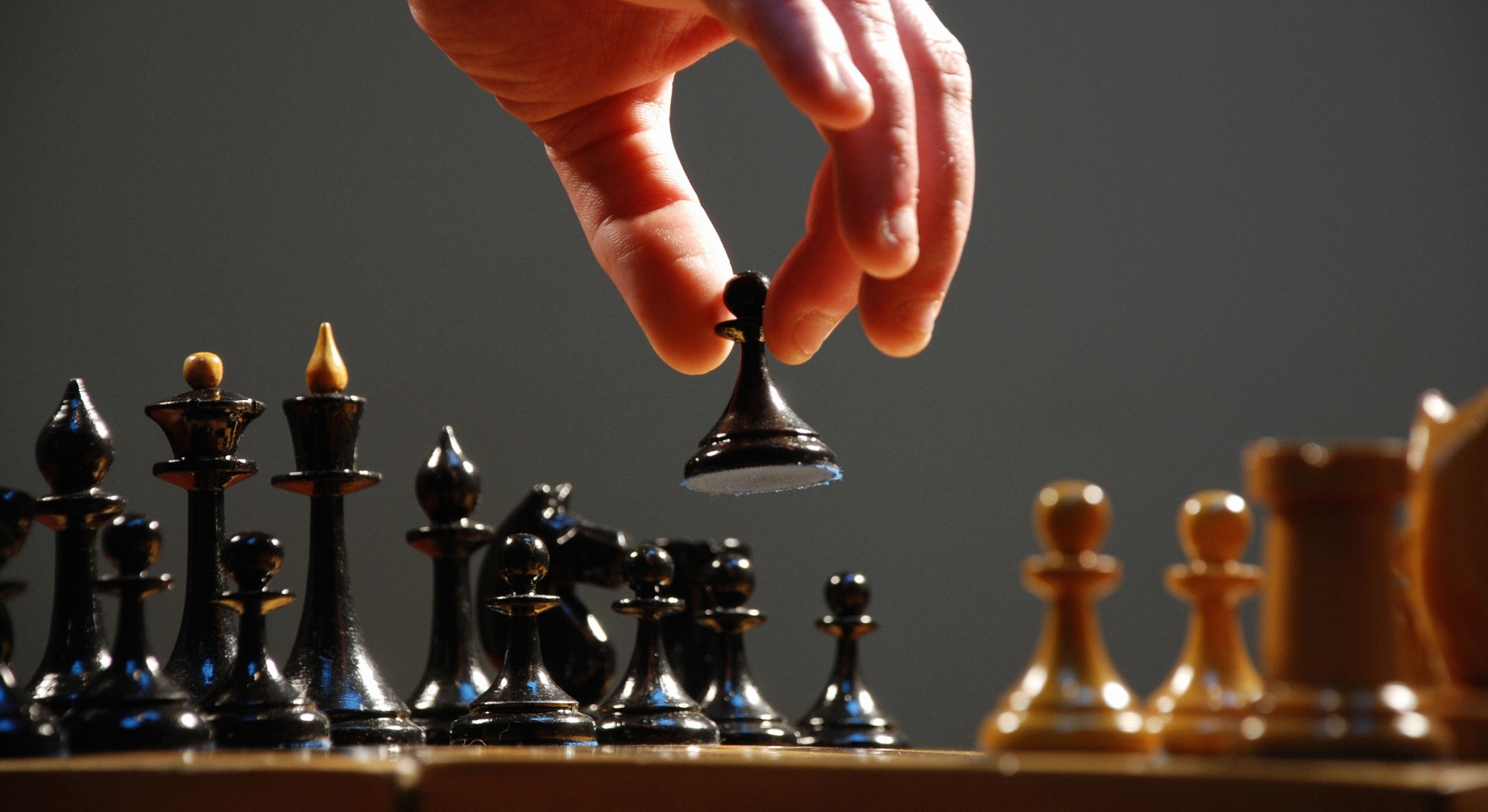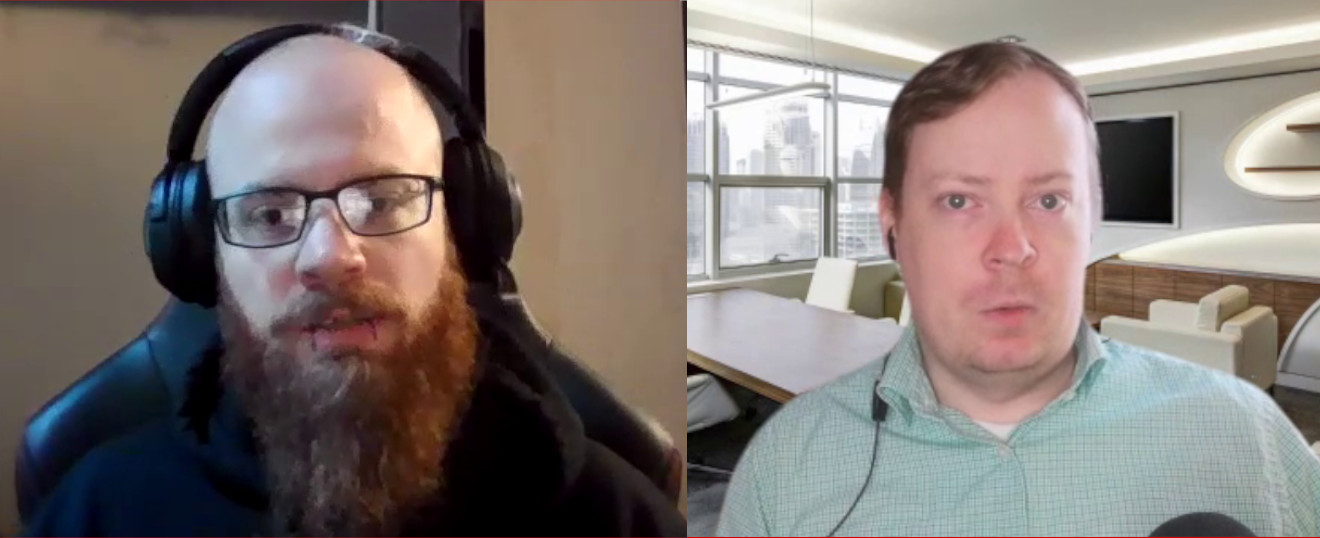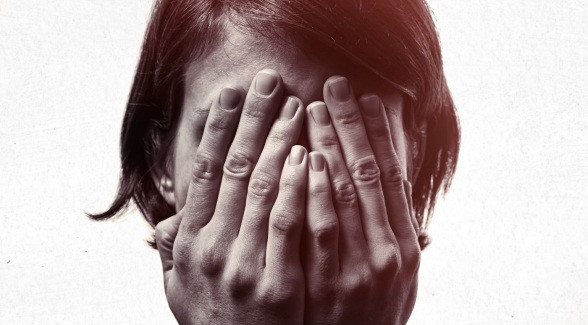Human sexuality begins to emerge at an early age. Our gender identity takes form and we become involved in complex dynamics, at first with our parents, and later with society in general.
Watch a Short Excerpt:
Transcript (continued):
William: Another topic we could talk about in this context is sexual orientation and, if you prefer another term, I don't care. I was told once by... she was a stranger, but she was very open when when I talked to her. We got talking and she started talking about her family and said that her nephew recently decided to be gay. And it was something she didn't like. She was disappointed, again, maybe because that didn't feel the expected role for a man. But what got me was the the word "decide". And I thought "Hmm, I only have a few gay friends, and I don't get to talk about this topic a lot. But from what I understand, it's not something you decide. It's rather something you discover or just go through, I mean, confront. It's not really not really something you have power over." So it was interesting, and all I could say to her was "Um, yeah. Human development of sexuality is very complex, and we don't understand a lot about it." So I wonder how that really comes about. But it's best to just try to understand the person.
Steven: Yeah, the "how" is I guess less important than the acceptance and love around that kind of thing. Because I think people do focus too much on the "why": "Why are you this way?" Don't be so judgmental as a culture. I had some weird but fascinating experiences with it all. Oobviously, going back to things like terminology of things, like masculine and feminine. And to the emotions. I was, during my teenage years, well during my early childhood and teenage years, very outwardly emotional person, would cry at films, would get upset if someone called me a name, would be very sensitive to these things. And you know I processed those and kind of learned to accept those. Especially at university I was amongst a bunch of young ladies, women, with my friends that were fascinated by this, that a man was okay just to be expressive about his emotions. But then I met a lot of people who assumed I was gay. And it was fascinating for me to be like, well first of all, to be like "Okay, well, was I? Am I actually gay, and is it a cultural thing that I think I'm not gay, and it had programmed me?" I spent a lot of time thinking about that, and came to the conclusion, you know, that biologically I'm definitely attracted to women and can appreciate a man, can appreciate all forms of physical men. But don't necessarily want to kiss or hold hands or whatever and have that connection with men. With the emotional side of it: I actually specifically remember being at a party, and someone who was gay, she was lesbian. And she used this argument of me being quite emotional to say that I was definitely gay. And I was like "That doesn't work. Emotions aren't... I don't think emotions are... just because I have a traditionally feminine sense of emotion, why does it have to have a feminine or masculine trait to it?" That's complete different from sexual orientation, or your personality intention. You might actually be attracted to the traditional masculine traits of dominant... you might be attracted to those things, but those can be in both women or men.
William: Right.
Steven: So it doesn't dictate if you are straight or not. And it was just a very weird thing for me to have to go through, and assess and explain, I guess as well at that stage.
William: We have these snap judgments, and we like to distance ourselves from everything that doesn't fit into our worldview, our very simplistic worldview. And so people who only have a very superficial understanding of sexual development and its later playout in life will just quickly categorize you, "you" in the everyone form.
Steven: Because we're all human. No matter how much we think we're progressive or intelligent or understanding, we're still really ignorant a lot of things. We will have blind sides, things we think we understand but we actually don't. And it's figuring out which ones those are to be able to to break down those barriers and spend more time trying to understand.
William: Yeah. My understanding of these things has just grown slowly, mainly by having friends who do not go through the usual binary experience and, you know, feel the same way for their entire life, and then just not pushing the topic but seizing opportunities when it does come up to learn, to just ask them or to just give them some space to talk about it for whatever reason they would like to talk about it, and just trying to accommodate that new knowledge. Because there's not much to read about it, to watch about it. It is in the media, and there are science books. But it's not a huge mainstream topic yet that it's become total norm, just some part of common sense basically.
Steven: It's getting there, though. It's getting a lot of shows, you know, on TV and stuff: "Orange is the new black", "Game of Thrones" covered these things, just making it more normal; it is in society. Because it has always been there. It is a myth that it's suddenly happening now. No. It's funny. It's being accepted more now, and it's given access to media and and the mainstream, to normalize it in the way that it should be, and not be discriminated against. But throughout history it has, because it's different; it's not the majority. And therefore the majority think it must be wrong. And that's why they've had people who are LGBTQ tend to have been discriminated against. But now it's definitely again... we're in the middle of this wonderful time of acceptance and love. You know about pride: it goes around. Different marches and discussions, especially amongst family members. I hear a lot of things now where when someone comes out the parents are like "Oh yeah, that's fine. We kind of suspected, or we knew." And the child's like "Oh, okay. I thought you were gonna freak out about this." Then you have the opposite side, where you do get parents that are obviously very cruel and very horrible to those that have come to a massive situation in their lives of identity and courage to be able to express that in a society that still is judgmental at times, to have that courage to do it, and then be pushed away or disowned. It's horrible. It's so bizarre.
William: Something I heard about AI and homosexuality is interesting, and I'd like to hear your opinion on this. And I've only heard this, but I'm sure I could look it up somewhere. AI is supposed to be able to just get someone's picture, just the photo of their face, and be able to tell with high accuracy whether that person is gay or not. And that's pretty crazy, given what what you just explained about the complexity of someone's identity. So how does that work? Do they somehow show it on the outside? It's just a question from my side. I don't know how much you want to talk about it. Do you think there are norms in society how someone needs to present themselves when they're gay or straight so that it becomes obvious for other people? I heard that men in the 70s and 80s wore a earring in one particular ear, I don't know which one, and that's that disappeared. And nowadays, at least in the media, some men will act very effeminately. I think in most cases it's an act. I suppose sometimes it's their natural behavior. But from what I read that outward effeminate behavior or appearance is not correlated with being homosexual as a man, at all.
Steven: Yeah. You can't make statements like "it is this or it isn't this". As always, it's very much one personality will just be more effeminate. They will want to express themselves in a feminine way by traditional rules of what feminine actually is. But it's just expressing who they are. They're just being themselves. And they are being allowed to be themselves. And then you get many men who aren't that way, the gay. You know, they're quite happy in their jeans and t-shirt, doing whatever. There's no "this can define if"... No outwardly thing can define. It can tell people. It can show people. But I know some very feminine dudes that aren't gay, I mean in the traditional sense. And so that's what the culture needs to move away from. It needs to move away from those stereotypes, I guess. I think so, yeah.
William: I think ideally the traditional genders should learn from each other, should complement each other. I think it's good that women in the West these days have an expectation of their male partners to be more empathetic. And maybe there's something similar in the other direction. Well yeah, I suppose there is,not necessarily because men want women to be more in charge, but because it's necessary. It's necessary for more women now than it used to be a few decades ago that they can sustain themselves financially. Well it's also more possible these days, obviously. I'm sure they've always wanted to be more independent. But that's becoming more normal. And guys expressing their feelings and just being more open for their own feelings is becoming more normal. I think that's a change in the right direction. We don't need to be the same as the other person, but we can certainly learn from them and just be open to their positive traits.
Steven: It's looking at the traits positive or negative. In any friendship or even a relationship those aspects that somebody else has that are more positive in an area. You, for example: You're better at questioning things than I am. Sometimes I just go along with things, and you research, you question. And that's something over time that hopefully I'll adopt and will become part of my personality. Because seeing it in you: "Oh yeah. Steven does this. That's a good thing for me to kind of adopt." And in any relationship, in terms of romantic, you spend a lot more time with that person. Therefore it's more likely to potentially have an impact. But there's traits of personality. But the problem, I find, and this is just my own personal opinion of what I observed, is that usually people adopt negative. So over time, instead of adopting the positive, working together to actually move, improve themselves, I guess. But if you're trying to, I guess, be a more productive, in society, human being, in terms of kindness and happiness and whatever; if that's your goal, then if you were adopting those personality traits that would be great. But most people aren't actively trying to do that. Therefore the instinct kicks in, and just without realizing it, the more domineering negative aspects seem to just be adopted. Or one side just goes quiet. So one personality in the relationship just accepts whatever the other person does and just gets on with it. Because that is easier.
William: It can happen that people give up on evolving and improving themselves, for many different reasons.
Steven: It sounds so pessimistic but it's my observation with relationships, where so many just end up splitting up or in divorce or whatever; and it's usually because the one person's negative personality traits aren't being changed. They just get worse and worse and worse, or highlighted. It's not necessarily getting worse, but highlighted by the other person's desire to change or improve.
William: It becomes an issue.
Steven: That's why relationships are so complex, because of those things. Because very few people are actually trying to do that, they're actually trying to change the parts of themselves in a way that is humble and non-judgmental. Because there's nothing worse than to be judged, is there. There's nothing worse than feeling like you're not good enough, or you're wrong as a person, like who you are isn't right. So it can be very difficult in a relationship, can't it.
William: Right. So you want the approval of your partner. But to get back to the original topic, or to link it back, you want the approval of your parents. Right? Some people carry that with them their entire life: that they didn't feel valued enough by their parents. And so they will live with feelings of guilt or shame or worthlessness for their entire lives sometimes. So another way how we need to split from our parents is in what gives us value and purpose in life. We need to become more independent in that.
Steven: That responsibility actually should lie with the parents. The parents should be teaching children to think that way. It comes back to that, what we talked about, about there being multiple... in a society if there was multiple parents, they would be able to give children more options of how they view what a relationship should be. And it will almost force the issue, I guess, of a child seeing different relationships, rather than just one, one relationship being its primary observation.
William: Well. It's been a fascinating conversation. Obviously we can go a lot deeper. I'm glad we were able to just address these things. They've been on my mind recently. I'm starting to just looking for these things in the world and trying to figure out more how I fit in. How far am I in my own development? Because there's always room for progress. And I want that feeling of Independence and self-worth that I mentioned there in the end. I want to stand on my own two feet and not depend on someone else for just feeling like a full valid valuable human being. So it's a very old topic. It seems like everyone has to go through it. And some make it through unscathed, seemingly. But I often wonder whether everyone has to go through something like this in some form or another, whether it's tied in with the parents or gender or romantic relationships. I think everyone, sooner or later, is confronted with some issue about identity, whether it's biological, sexual, emotional, mental. And I guess it's just something that happens to everyone.
Steven: I think the research that you do... I mentioned a few minutes ago about how you question; you look for these things. Because for me talkking about things like the Oedipus complex and stuff is uncomfortable. It's trying to understand these viewpoints from psychologists a long time ago and current, and how it relates to me and my viewpoint on the world and those kind of things. That's why I like this podcasts and us chatting because we're able to talk about uncomfortable things. And it pushes the boundaries a little bit. Again, uncomfortable for me because I haven't looked into it much. There's much that maybe I should have done. Because I just accept that, you know, I did have a bit of a, as most people do, I guess, a broken... I guess we all have this expectation of what a family should be or a parent should be. And once that smashed... It does damage to us all when we realize that our parents are just human; then we go through a process of re-identifying selves and what we think a parent should be or is, that we take our parents just for who they are and not what we think they should be. I think that's a very complex process that we go through right from the get-go as a child. I think subconsciously we're observing it. As we get older we tend to think that this parental expectation is what we think it should be. And then BOOM. We suddenly find out our parents are flawed, and we can have a massive psychological trauma. It can just completely tear the fabric of reality, because that's your constant, that's your North Star. You think your parents are always going to be there for you; and then something happens where they're not. Questioning lots of different things, going back to different psychological perspectives to help understand the genesis of that. Because we don't. Child development is still, I think, a massive area in psychology that is being still being explored, even now, in making new discoveries about how children learn and are influenced. And then once we understand those things you're more likely to understand yourself now because origins, I guess, are very important for us.
William: Yeah. We like to raise our own awareness and understand what is this process we're going through. And I think that's usually a positive thing. Obviously it can be too much at once. But taking it in little bites is usually a helpful thing, to feel like we're more in control of our own lives and making deliberate decisions about the direction we want to evolve in. With that last comment I now want to have another episode on parenting sometime.
Steven: Yeah, me too.
William: Because one big question that you just reminded me that I have is "How far along do you need to be in your own personal development before you are qualified to be a parent?"
Steven: That is a good way of putting it. I think that sums it up right. That's a good conclusion to end on.
William: Yeah, teaser.
Steven: Well puts. You always put a good question. You speak it very well.
William:
Steven: We need a little cliffhanger somtimes. We want people coming back.
William: Yeah.
Other Episodes:
Ep. 51: How Conditioned Are We ?
How much of what you do, think and feel comes from intentional, free chosing? How much of your actions and decisions are pre-programmed? You are the product of your upbringing, culture and genetics. What is out of our control? What can we influence? How can we counteract our predestination?
Ep. 50: What Am I Responsible For ?
Are you taking too little responsibility for your actions, or perhaps too much? How much are you able to understand or determine the consequences of your decisions? Are you in control of anything? Is free will an illusion? Can you do something to improve your thoughts, feelings and relationships with...
Ep. 49: Empathy Can Be A Super Power
Everyone has the choice of either living isolated from other people and their own feelings on the one hand, or to connect with others and their own emotional core. The road towards connectedness involves vulberability and weakness. But it leads to a very rewarding ability that includes deeper understanding of...
Ep. 48: Why Am I Ashamed?
What secrets do you have? What facts about you must never become known to others? What happens in our childhood that implants beliefs in us that hide away for the rest of our life? Can we uncover them deliberately? Can we regain the emotional freedom and levity that playing children...


